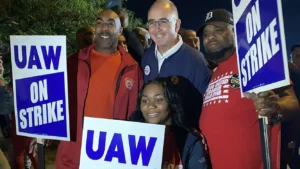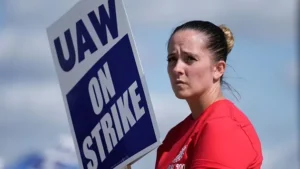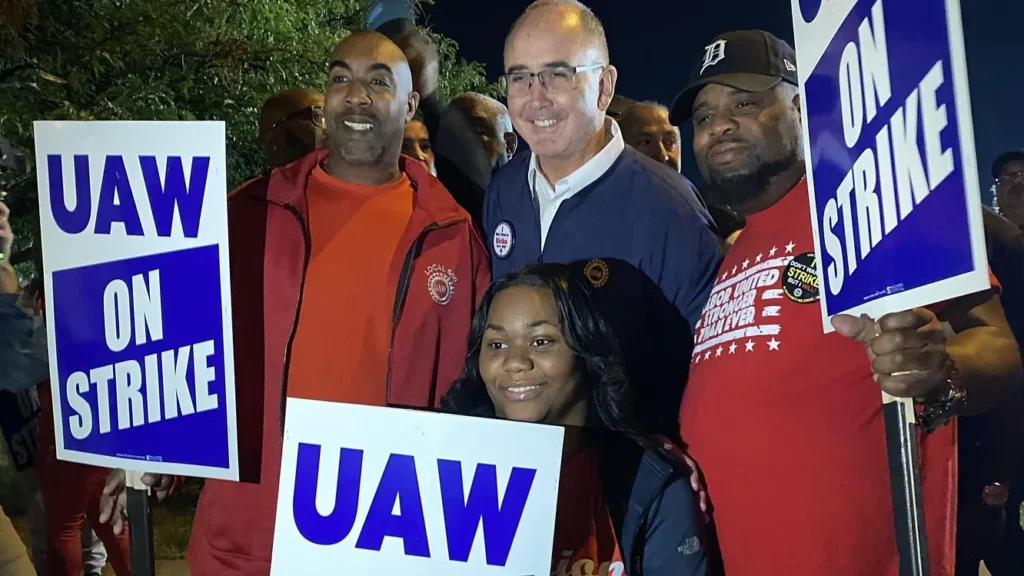The strike by the United Auto Workers (UAW) against major automakers in Detroit was a notable event that went beyond the usual scope of a labor dispute. Initiated on September 15, 2023 this movement aimed to secure better wages, benefits, and job security for union members. Occurring against a backdrop of significant profits reported by automakers, the strike highlighted the wide disparity in earnings between CEOs and ordinary workers. More significantly, however, UAW’s approach to the dispute, drawing on deep faith-based traditions of the Social Gospel movement and a multi-racial coalition, demonstrated the growing opportunity for political realignment among demographics that have been historically fractured.
The strike represented an uncommon example of multiracial unity in the U.S., with workers from diverse backgrounds showed solidarity on the picket lines. Unions historically have played a crucial role in bridging racial divides, fostering mutual respect and cooperation among workers of different races.
This strike also marked a pivotal moment in U.S. labor history, particularly with President Biden’s unprecedented gesture of support, being the first acting president to join a picket line. It was part of a broader resurgence in union activity, reflecting a growing public support for fair distribution of corporate profits.
Politically, the strike was significant. The decline of unions in previous decades was linked to the shift of White working-class voters away from the Democratic Party, a trend that was a factor in Donald Trump’s election in 2016. However, the labor movement, exemplified by the UAW strike, suggested a potential shift in this dynamic, possibly affecting future political alignments.

The UAW’s historical role in supporting civil rights movements further underscored the intersection of labor and racial justice. Leaders like Walter Reuther were instrumental in key civil rights events, and figures like Martin Luther King Jr. were staunch advocates for unions, highlighting the interconnectedness of these causes.
Despite past issues within unions, including their own history of racism and corruption, the UAW strike represented more than a fight for labor rights. It was a movement that could reshape long-term political trends and was indicative of the deep-seated relationship between labor rights and racial equality in the United States.
This is a summary of a piece written by John Blake for CNN. Read the full article here.
